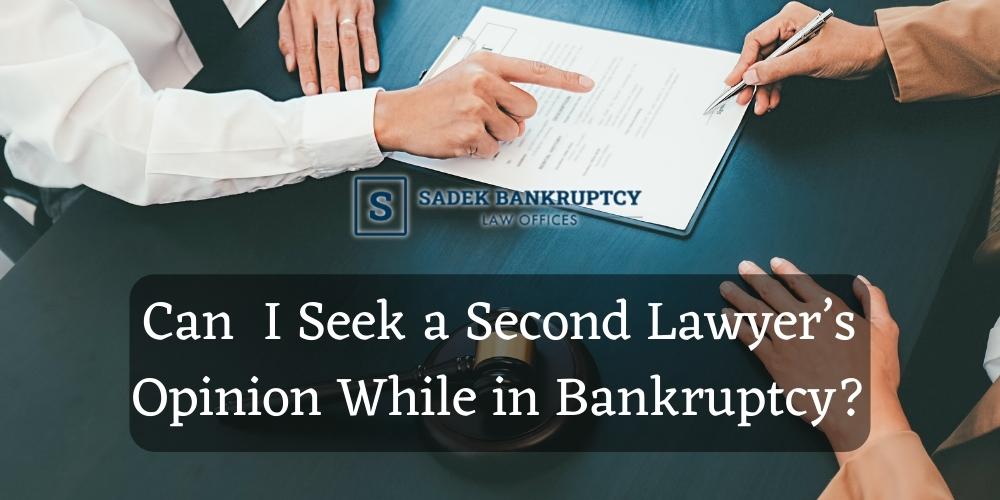It is extremely common to receive an inquiry from a bankruptcy filer that needs additional explanation or possibly a thorough review of their ongoing case matter. This is especially common in an ongoing Chapter 13 Bankruptcy. Our practice assists clients in Pennsylvania (Greater Philadelphia area) and all of New Jersey; in these locations a Chapter 13 matter generally lasts 3-5 years, and accordingly, due to the duration of time, many situations can arise that need further explanation.
The most common issue during a Chapter 7 Bankruptcy matter is failure to properly assess a home or other assets in the beginning of a case. In bankruptcy, all assets shall be listed, sometimes there is equity in an asset that prevents a bankruptcy filer from qualifying for a Chapter 7 Bankruptcy. Said “non” exempt equity could lead to dismissal of a filed Chapter 7 Bankruptcy matter, or worse, sale of the subject asset. Especially, if such asset is a home, this could be devastating to the Chapter 7 filer. With home prices increasing dramatically over the past few years, it is most important to accurately appraise real estate and other property to best accomplish the primary goals of a Chapter 7 matter including, a fresh financial start and keeping all property and assets through the bankruptcy process.
In Chapter 13 Bankruptcy there are two main reasons that a filer usually seeks new counsel, including lack of communication from their counsel and unaffordable plan payments .
In Chapter 13 Bankruptcy, ongoing communication with your counsel is imperative. It is fundamental to the success of the Chapter 13 bankruptcy that the filer is made aware in advance of their payment obligations. Details such as the Chapter 13 Bankruptcy Plan payment amount, frequency of payment and how to make the payment are crucial. The purpose of a Chapter 13 Bankruptcy is to reorganize debt and catch-up with priority creditors. Failure to make timely payments due to lack of communication from counsel can cause a bankruptcy filer to fall behind on Chapter 13 payments which can lead to a dismissal of the bankruptcy matter.
A Chapter 13 Bankruptcy is a flexible debt relief plan and allows a filer to modify their Chapter 13 Plan when there is a change in income, expenses, or need to purchase a new home or vehicle. Although most legal work involved in a Chapter 13 is done before confirmation of the Plan, the greatest duration of the Chapter 13 Plan itself is the payment plan which lasts 3-5 years. During said time it is foreseeable that income changes or changes in expenses may render the Chapter 13 Plan unaffordable. It is imperative that the filer communicates such with their counsel so a Motion to Modify Chapter 13 Payments or a Motion to Suspend Chapter 13 Payments can be filed on behalf of the filer so the Chapter 13 filing can successfully conclude.
Another common reason that filers seek alternative Chapter 13 counsel is that their current Chapter 13 payment obligation is too high. A thorough review of Creditor Claims filed in a Chapter 13 Plan is most essential from the outset of a Chapter 13 matter. Often times, creditor claims can be lowered by filing an Objection to the subject claim, and if, such objection is successful, the savings are then passed onto the Chapter 13 filing. Common reasons for Objections to claims are that the debt is beyond the statute of limitations for collectability, the claim fails to credit payment made by the bankruptcy filer, or the debt has been misclassified and need not be paid in the Chapter 13 Plan.
In addition to creditor claims, it is crucial to consider all expenses that the filer has. There are many factors that are involved in assessing a Chapter 13 Payment Plan. The filer’s expenses are just one of those factors. The Courts allow extraordinary expenses for special circumstances. Expenses such as medical, educational, childcare, and/or expenses related to dependents must be considered to maintain an affordable Chapter 13 Plan.
In conclusion, proper valuation of assets, ongoing and regular communication with counsel and adjustments in an ongoing Bankruptcy matter are crucial to the success of a filed Bankruptcy matter. Sadek Bankruptcy Law Offices has assisted thousands of bankruptcy filers in successful cases. If you would like us to put our experience to work for you, please reach out for a free initial consultation. We look forward to helping you!





